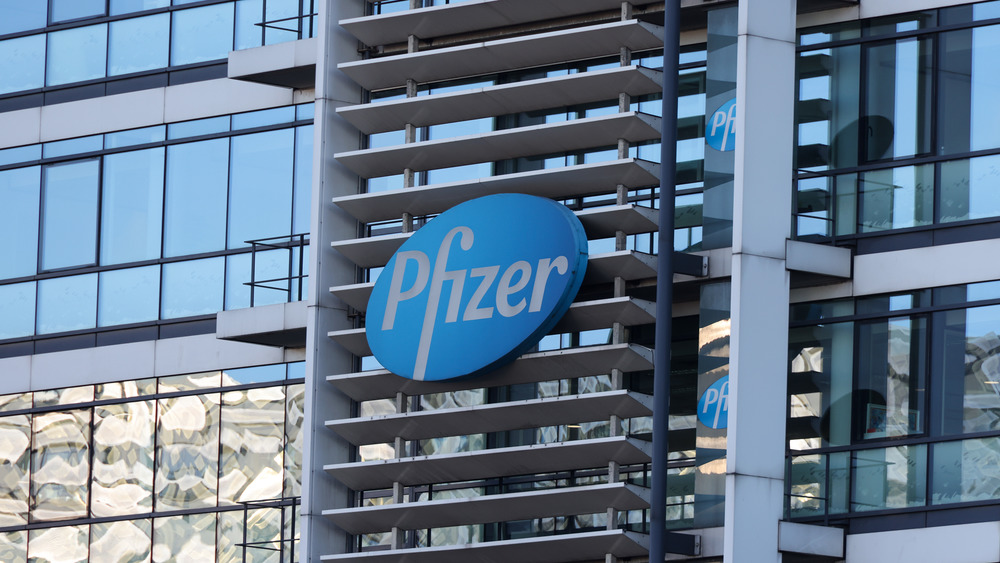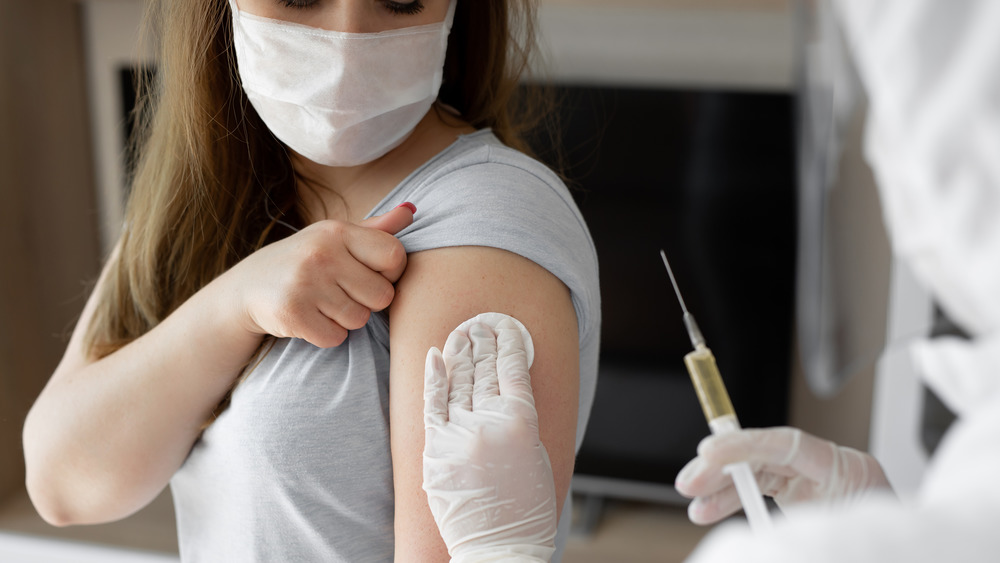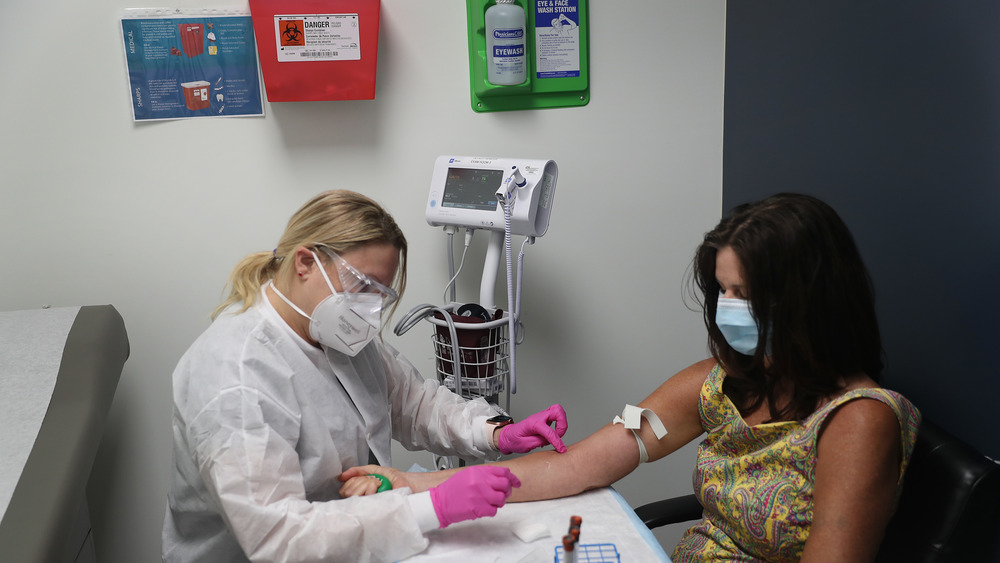The Real Reason Pfizer Can't Supply The US More COVID Vaccines Until Summer
President-elect Joe Biden may have promised to protect America from the COVID-19 pandemic using science, but he'll have to contend with unfinished issues left behind by the Trump Administration after he takes office. One of those problems involves the Pfizer vaccine.
Pfizer's anti-coronavirus shot is meant to be 95 percent effective with no serious side effects. It's also seen as highly effective in older people who don't seem to respond to some other types of inoculations. The Pfizer vaccine is now being reviewed for emergency use, and even if it is proven to be the best that science can produce, the U.S. will have 100 million fewer doses to hand out between January and early July of 2021. This is because Trump administration officials refused an offer to buy extra doses a few months back. Pfizer is committed to selling 100 million doses to the U.S., and because it is a two-dose vaccine, that will be enough to cover just 50 million Americans (via The New York Times).
Pfizer had offered to sell more doses to the government, but it refused the offer
Pfizer officials had reportedly asked Operation Warp Speed — the government's accelerated vaccine development program — to pick up 200 million doses, but Trump administration officials declined. At the time, they said 100 million doses would be enough because "anyone who wanted to sell us ... without an [FDA] approval, hundreds of millions of doses back in July and August, was just not going to get the government's money," a senior administration official told The Washington Post.
Gen. Paul Ostrowski, who is in charge of logistics for Operation Warp speed, says he's not worried about getting enough to vaccinate the people that want and need it. "It's clear that Pfizer made plans with other countries. Many have been announced. We understand those pieces," he said.
But that isn't keeping President Donald Trump from signing an executive order that would make it a priority to vaccinate Americans before anyone else, and its not clear whether the president can actually keep a company from fulfilling its contractual obligations with anyone else. "The executive order reaffirms to the American people that we are going to put America first," a senior administration official said to The Washington Post.
Getting vaccines from different suppliers is a strategy
Pfizer, which is working with German company BioNTech on its COVID-19 shot, announced its new vaccine just days after President-elect Joe Biden was declared the winner of the Nov. 3 presidential race. The company's head of vaccine research Kathrin Jansen was quick to say: "We were never part of the Warp Speed. We have never taken any money from the U.S. government, or from anyone," although, as we know now, Pfizer did agree to sell 100 million doses to the U.S. government through Warp Speed (via The New York Times).
Warp Speed officials say it is their strategy to source a variety of vaccines across different vaccine manufacturers. They are waiting for Johnson & Johnson, which expects to announce its trial results in January, and AstraZeneca, whose results were viewed as being problematic and are currently being reviewed. Warp Speed's chief science adviser, Mocef Slaoui said having fewer Pfizer doses wouldn't have an impact because, "Specifically this means we can have more Moderna vaccine doses, more Pfizer vaccine doses, more Johnson & Johnson vaccine doses and AstraZeneca doses for the foreseeable future. We could have all of them. And for this reason, we feel confident we could cover the needs without a specific cliff ... We have planned things in such a way as we would indeed avoid a cliff," Slaoui told The Washington Post.
35 to 40 million doses of COVID-19 vaccines are available for distribution
Pfizer has not closed the door on selling the U.S. government any more doses. In a press release picked up by The New York Times, Pfizer said: "Any additional doses beyond the 100 million are subject to a separate and mutually acceptable agreement," and that "the company is not able to comment on any confidential discussions that may be taking place with the U.S. government." And while it is confident it will have the option to order more doses, The Washington Post says neither the government nor Moderna have announced any additional orders beyond the 100 million doses, which can cover 50 million people, that Warp Speed initially paid for; but the U.S. has the option of buying an additional 400 million doses.
While we're close to getting both Moderna and Pfizer vaccines cleared for use, we're not going to be seeing it anytime soon. Supply chain problems mean that the federal government is unable to follow through on a promise made by the Trump Administration, which is that 300 million doses would be made available before the end of this month. At present, only 35 to 40 million doses can be shipped out before the end of 2020 (via The Washington Post).



